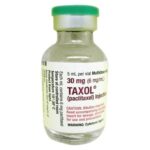Cytoxan: Uses, Dosage, Side Effects, How it works

What is Cytoxan?
Cytoxan is a brand of cyclophosphamid, a strong cancer (chemotherapy) medication used to treat several types of cancer. Cytoxan is used alone or in combination with other medications to treat Hodgkin’s lymphoma (Hodgkin’s disease) and non-Hodgkin’s lymphoma (types of cancer that begin in a type of white blood cells that normally fights infection); cutaneous T-cell lymphoma (CTCL, a group of cancers of the immune system that first appear as skin rashes); multiple myeloma (a type of cancer of the bone marrow); and certain types of leukemia (cancer of the white blood cells), including chronic lymphocytic leukemia (CLL), chronic myelogenous leukemia (CML), acute myeloid leukemia (AML, ANLL), and acute lymphoblastic leukemia (ALL). It is also used to treat retinoblastoma (cancer in the eye), neuroblastoma (a cancer that begins in nerve cells and occurs mainly in children), ovarian cancer (cancer that begins in the female reproductive organs where eggs are formed), and breast cancer.
Cytoxan is also used to treat nephrotic syndrome (a disease that is caused by damage to the kidneys) in children whose disease has not improved, has gotten worse, or has come back after taking other medications or in children who experienced intolerable side effects with other medications. Cytoxan is in a class of medications called alkylating agents. When Cytoxan is used to treat cancer, it works by slowing or stopping the growth of cancer cells in your body. When Cytoxan is used to treat nephrotic syndrome, it works by suppressing your body’s immune system.
How is Cytoxan best taken?
Use Cytoxan (cyclophosphamide tablets) as ordered by your doctor. Read all information given to you. Follow all instructions closely.
• Take with or without food.
• If you are taking Cytoxan (cyclophosphamide tablets) once a day, take it in the morning. Do not take it at night unless told to do so by your doctor.
• Wear gloves when touching Cytoxan (cyclophosphamide tablets).
• Swallow whole. Do not chew, break, or crush.
• If the tablet is crushed or broken, do not touch the contents. If you do touch the contents or get it in your eyes, wash hands or eyes right away.
• Pass urine often. You need to empty your bladder often. Drinking lots of liquids will help.
• Drink lots of noncaffeine liquids unless told to drink less liquid by your doctor.
• If you have upset stomach, throwing up, diarrhea, or are not hungry, talk with your doctor. There may be ways to lower these side effects.
What do I do if I miss a dose?
• Take a missed dose as soon as you think about it.
• If it is close to the time for your next dose, skip the missed dose and go back to your normal time.
• Do not take 2 doses at the same time or extra doses.
How quickly does Cytoxan work?
Generally, Cytoxan takes time to work. Its positive effects will likely start at 4-8 weeks. Side effects can occur earlier.
What side effects can this medication cause?
Cyclophosphamide may cause side effects. Tell your doctor if any of these symptoms are severe or do not go away:
• nausea
• vomiting
• loss of appetite or weight
• abdominal pain
• diarrhea
• hair loss
• sores on the mouth or tongue
• changes in skin color
• changes in color or growth of finger or toe nails
Some side effects can be serious. If you experience any of these symptoms, call your doctor immediately:
• sore throat, fever, chills, or other signs of infection
• poor or slow wound healing
• unusual bruising or bleeding
• black, tarry stools
• painful urination or red urine
• rash
• hives
• itching
• difficulty breathing or swallowing
• shortness of breath
• cough
• swelling in the legs, ankles, or feet
• chest pain
• yellowing of the skin or eyes
Cyclophosphamide may increase the risk that you will develop other cancers. Talk to your doctor about the risks of taking cyclophosphamide.
Cyclophosphamide may cause other side effects. Call your doctor if you have any unusual problems while taking this medication.
If you experience a serious side effect, you or your doctor may send a report to the Food and Drug Administration’s (FDA) MedWatch Adverse Event Reporting program online (http://www.fda.gov/Safety/MedWatch) or by phone (1-800-332-1088).
What are long term side effects of Cytoxan?
The long-term side effects of cyclophosphamide (Cytoxan) are damage to the bladder and the bone marrow. Bladder cancer is a well-known risk and continues to arise at least 10-15 years after the drug was given.
Can Cytoxan cause kidney damage?
Kidney stones, history of Cyclophosphamide may increase levels of uric acid in the body, which can cause gout or kidney stones.
Cytoxan Safety Information
Cytoxan can increase the risk of developing some kinds of infections, especially shingles.
Cytoxan may cause reduced number of white blood cells. This can occur 8-12 days after starting treatment. Your doctor will check your blood counts around this time and make dose adjustments as needed.
Cytoxan can also cause infertility in both men and women. Although women taking Cytoxan can stop having periods, they can still become pregnant, so an effective form of birth control to prevent pregnancy should be used while taking this medication. Taking Cytoxan during pregnancy is very dangerous to an unborn child.
Cytoxan may result in blood in the urine or scarring of the bladder. Patients taking oral Cytoxan should drink plenty of fluids each day to help prevent problems. A medication called mesna may help prevent bladder problems. Cytoxan also increases the risk of developing some kinds of cancer, including lymphoma, skin and bladder cancer (periodic urine tests screen for this).





